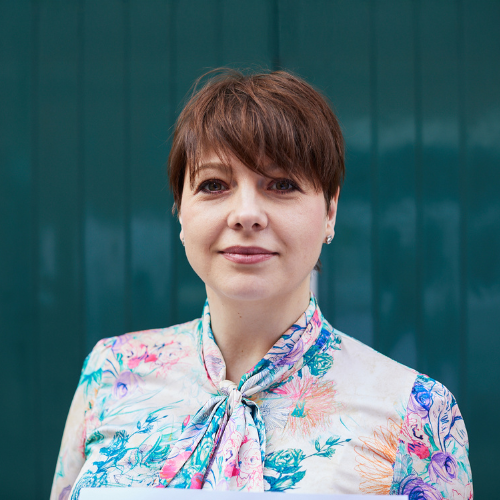
Why bias training needs to evolve – from awareness to sustained, measurable change
Unconscious bias training has been a staple of organisational learning for decades, and for good reason. Understanding how cognitive shortcuts shape decisions, behaviours, and interactions is a necessary foundation for fairer workplaces and better customer experiences.
But while awareness of unconscious bias has grown, the evidence suggests that biased outcomes remain stubbornly persistent – in hiring and progression, in frontline service, in health and justice settings, and in everyday workplace interactions. This gap between intention and impact raises an uncomfortable but important question: if awareness is so widespread, why hasn’t it translated more consistently into behaviour change?
The answer isn’t that bias training has failed. It’s that many approaches have reached the limits of what awareness alone can achieve.
The limits of awareness-only training
Raising awareness of unconscious bias is an important starting point. It helps people recognise that bias is not about intent or character, but about automatic mental shortcuts that affect everyone. However, awareness on its own has clear limitations.
Harvard Business Review researchers Francesca Gino and Katherine Coffman highlight this problem starkly. In a large survey of organisations, 87% of respondents said their unconscious bias training doesn’t go much past explaining the science behind bias and the costs of discrimination. Crucially, only 10% of programmes provided attendees with strategies for reducing bias.
It’s like delivering health and safety training that explains the risks but never trains people how to respond when something actually goes wrong. Knowing the theory doesn’t automatically translate into safer behaviour – and the same is true of bias.
The assumption that we can reduce bias simply by being aware of it is the fatal flaw in many programmes. In practice, most unconscious bias training ends exactly where it should begin.
Why behaviour change requires more than insight
Bias shows up most strongly under pressure – when time is limited, stakes are high, or decisions need to be made at speed. In those moments, even well-intentioned people default to habits and snap judgements unless they have been supported to do something different.
This is why effective bias training must move beyond explanation and into application. To change behaviour, people need:
- Practical strategies they can use at real decision points
- Opportunities to practise those strategies in realistic contexts
- Feedback and reflection to build confidence and skill
- Ongoing reinforcement so new behaviours stick
Without these elements, training risks becoming informative but inert – intellectually engaging, yet disconnected from everyday work, more equitable customer experiences, or fairer progression outcomes. People may understand the concepts in a calm training room but revert to habitual shortcuts when targets and deadlines loom, or the consequences of getting it wrong feel immediate.
An extended learning journey – the new minimum
The future of unconscious bias training lies in treating bias reduction as an extended learning journey, not a one-off intervention. If our objective is better decisions and fairer outcomes, then training must be judged by what happens at the decision point – on the hiring panel, at the counter, in the clinic – not only by how engaging the slide deck was.
Programmes that drive meaningful change treat bias reduction as a learning architecture rather than a single event, recognising that learning happens over time through repetition, practice, and reinforcement.
These design principles are non-negotiable:
- Foundational learning that builds a shared understanding of bias and its impact, delivered in a way that fits into the flow of work rather than sitting outside it
- Structured opportunities to apply bias-management techniques, enabling learners to practise decision-making in realistic scenarios and reflect on how bias shows up in their own role and context
- Ongoing prompts, reinforcement, and reflection beyond the training event, supporting the translation of insight into habit over time
- Clear mechanisms and follow-up tools for tracking progress and outcomes, allowing organisations to move beyond attendance metrics and assess whether learning is influencing real-world decisions and experiences
This is not academic hair-splitting. Together, these elements create the conditions for bias reduction to become a capability – something people actively work with – rather than a concept they simply understand. They are the difference between a training that makes people feel informed and a programme that materially improves work-relevant decisions and experiences.
From awareness to outcomes
This shift matters because organisations are increasingly being asked to demonstrate fairness, consistency, and defensibility in their decisions. Customers, employees, regulators, and communities all expect more than good intentions.
As Jo Higginson, Learning Manager at The Workforce Development Trust explains:
“We know that awareness on its own doesn’t change behaviour. What’s needed now are contemporary learning approaches and practical bias-management strategies that support people to manage bias in real decisions and practise new behaviours over time. That means experiential practice to embed techniques, combined with ongoing, on-the-job support that helps learners translate reflection into action. This is the kind of model that turns insight into habit, and habit into results.”
Leaders are also recognising that the next phase of bias training must be measured by outcomes, not participation.
“Organisations have made meaningful progress in raising awareness of unconscious bias,” says Christos Lucas, Managing Director of Learning Solutions at The Workforce Development Trust.
“The next challenge is ensuring that learning leads to sustained, measurable change. That means helping people apply bias-management strategies in the moments that matter, and being able to demonstrate fairer, more consistent outcomes as a result.”
Evolving the conversation
Unconscious bias training still has a vital role to play, but only if it continues to evolve. It should no longer be judged solely on how much it tells people about the brain. Awareness remains the entry point, not the end goal.
The real measure of effectiveness in unconscious bias work is whether people are better equipped to deliver fair, consistent service in real interactions – not just immediately after training, but over time. Research across service-led industries – from healthcare professionals to frontline retail and hospitality staff – shows that bias can subtly influence how customers are greeted, listened to, prioritised, and supported, shaping perceptions of warmth, competence, and trust in ways that directly affect satisfaction, loyalty, and repeat engagement.
Organisations with more inclusive cultures also consistently outperform peers on customer experience metrics and are more likely to see stronger financial performance. In part, this is because customers experience greater consistency and fairness across touchpoints, reducing friction, complaints, and variability in service quality.
Programmes that focus on practising bias management in real scenarios, reinforcing behaviours over time, and embedding inclusion into everyday operational decision-making are therefore more closely aligned with what drives sustainable service excellence. As customer expectations continue to rise, organisations are increasingly seeking learning approaches that protect decision quality, reduce service variability, and ensure that fairness is not just a stated value, but a consistently delivered experience.
Next steps
If you’re responsible for learning, leadership, or customer experience and want to move beyond awareness-only bias training, we’re launching a new WorldHost unconscious bias programme designed to support real-world decision-making, practice, and sustained behaviour change across sectors.
Register to receive early access, updates, and launch information.



